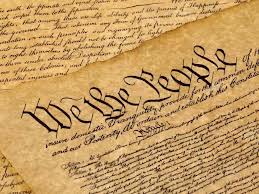Credit To The People
www.credittothepeople.org
info@credittothepeople.org
(413) 329-3200
~ Helping people understand and take responsibility
for using credit and money for the benefit of all ~
Vision and Mission
Vision
Our vision is a world in which:
Credit and money is controlled by the People and used for the benefit of the People,
the common good, the stakeholders – for the benefit of all.
Credit and money reflects the full faith and credit of We the People.
Credit and money is a common good, and is used as a tool of community building, what We the People decide is good, and what will create a healthy, just, and sustainable economy, society, and planet, (rather than a tool for the few to control the many).
(See below for our "Vision Statement - Conceptual Framework".)
Mission
Credit To The People is committed to a comprehensive understanding of credit and money. It is our further objective to facilitate the emergence of that understanding so that people take responsibility for using credit and money for the common good and benefit of all. We aim to create a healthy and thriving society out of our ongoing understanding of credit and money.
***
Vision Statement – Conceptual Framework:
In this world that we envision, we claim that all human beings are by nature inherently sovereign, endowed with the unalienable right to life, liberty, and the pursuit of happiness.
As such, people have the power and responsibility to choose and exercise these unalienable rights and play a role in self-governance through a dynamic participatory, collaborative, consensus-building, democratic, (and ideally
Sociocratic) decision-making process that leads toward consent.
As people choose to exercise these unalienable rights, they will acknowledge and take responsibility for themselves, one another, the greater community of life, the planet, and future generations.
To elaborate, as inner-connected and interdependent emerging world communities, all people participate in a shared vision of basic values, interdependent principles, and common standards, including:
- harmonizing diversity with unity, the exercise of freedom with the common good, and short-term objectives with
long-term goals,
- protecting the Earth's vitality, diversity, and beauty
- living with reverence for the mystery of being, gratitude for the gift of life, and humility regarding the human place in nature,...
in order to provide an ethical foundation, encourage a sustainable way of life, foster partnership in caring for one another and the Earth, and strengthen the spirit of human solidarity and kinship.
In this world, everyone has access to the economic resources needed to fulfill their dreams and highest potentials and participate in co-creating peaceful, sustainable, healthy, and prosperous communities.
We envision consent-oriented communities in which money is created by and for “We the People” and access to credit is controlled by and used for the benefit of the People.
People have the power to make agreements amongst themselves about how to exchange goods and services and for what to issue money. They truly understand how money works:
- as a way to facilitate exchange
- as a tool to coordinate economic activities
- as a tool for the common good and community building
- as a way to capitalize people’s capacities and gifts and facilitate the manifestation of dreams, visions, and
highest potentials
- as an expression of the creditworthiness of the people
- in which prices reflect the total true costs of production (including environmental and social costs), and
- in which accounting is simply a transparent reporting function.
Ultimately, we envision small scale consent-oriented communities worldwide co-creating what they want for themselves, issuing credit/money as a way to facilitate exchange, and in relationship with one another through the mutual exchange of products and services based on the expressed needs of the people and their respective communities.
(Commentary note: This begs the question about governance. See the link on Sociocracy, a compelling system of governance, using consent-based decision-making among equal individuals.)





